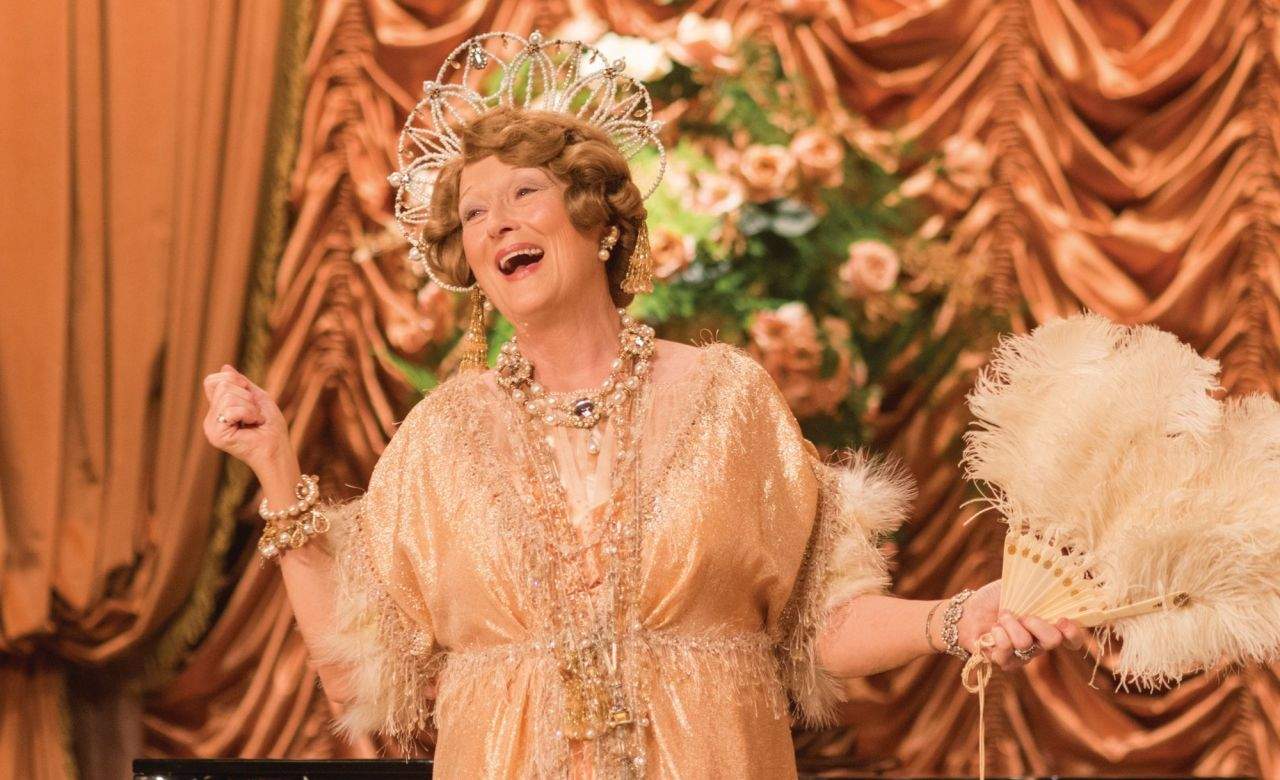Florence Foster Jenkins
This funny, charming biopic hits all the right notes.
Overview
Florence Foster Jenkins is a tale of talent and tenderness. The real-life American socialite might've infamously lacked the former, but the movie that shares her name overflows with the latter. Just as her ghastly attempts at singing sprang from her devotion to music, a "profound communion" as she called it, filmmaker Stephen Frears (The Program) is driven by affection and empathy for his eccentric subject. There's a reason that she packed out Carnegie Hall, earned a dedicated following, and inspired four plays, a documentary and now two feature films: Jenkins' passion is just that contagious.
Her enthusiasm also explains why people clamoured to her shows, starting with private recitals for pals and graduating to the prestigious gala concert she was determined to stage. When the film first spies Jenkins (Meryl Streep), she's in her element, with an adoring crowd watching on and loving husband St Clair Bayfield (Hugh Grant) waiting in the wings. It's only when she hires pianist Cosme McMoon (Simon Helberg) to accompany her operatic warbling that the extent of her inability to carry a tune becomes apparent McMoon can barely hide his dismay, let alone keep tickling the ivories as she croons, and viewers are expected to share his reaction.
And yet Florence Foster Jenkins isn't actually about the fact that its namesake can't sing. It's about what drives this fascinating woman, and how those who love her help her chase her dreams. Unlike the cruel streak that troubled recent French film Marguerite, which told a fictionalised version of the same scenario, Frears' take on the story couldn't be warmer. Even Jenkins' many eccentricities, as illustrated via the extravagant outfits she wears, her distinctive taste in decor, and her obsession with eating bathtubs full of potato salad, are met with kind-hearted humour.
Here, tone is key. There's a difference between laughing with someone as opposed to at them, which Frears understands even when he's highlighting the more farcical aspects of the story. With a critic (Christian McKay) determined to expose Jenkins' flaws, and Bayfield's mistress (Rebecca Ferguson) lurking around, there's certainly ample absurdity and drama on show. In one of his best performances in years, Grant proves the best indicator of how the movie chooses to treat each development, be it silly, serious or sweet. With the ideal balance of gracefulness and glossiness, nothing escapes his gaze — and whether he's being comforting or charming, he hits all the right notes.
Of course, Frears' loving approach couldn't have proven as sincere as it does without the committed work of his leading lady, who's in screwball comedy rather than awards-chasing mode. Streep may have demonstrated her vocal talents in Mamma Mia and Ricki and the Flash, but now the applauded actress appears to be enjoying herself doing exactly the opposite. Indeed, while it might threaten to overstay its welcome slightly, and clearly favours broad appeal over intimate details, Florence Foster Jenkins achieves the synergy between its central figure, lead performance and guiding force that all biopics seek. And unlike it's protagonist, it barely misses a beat.





